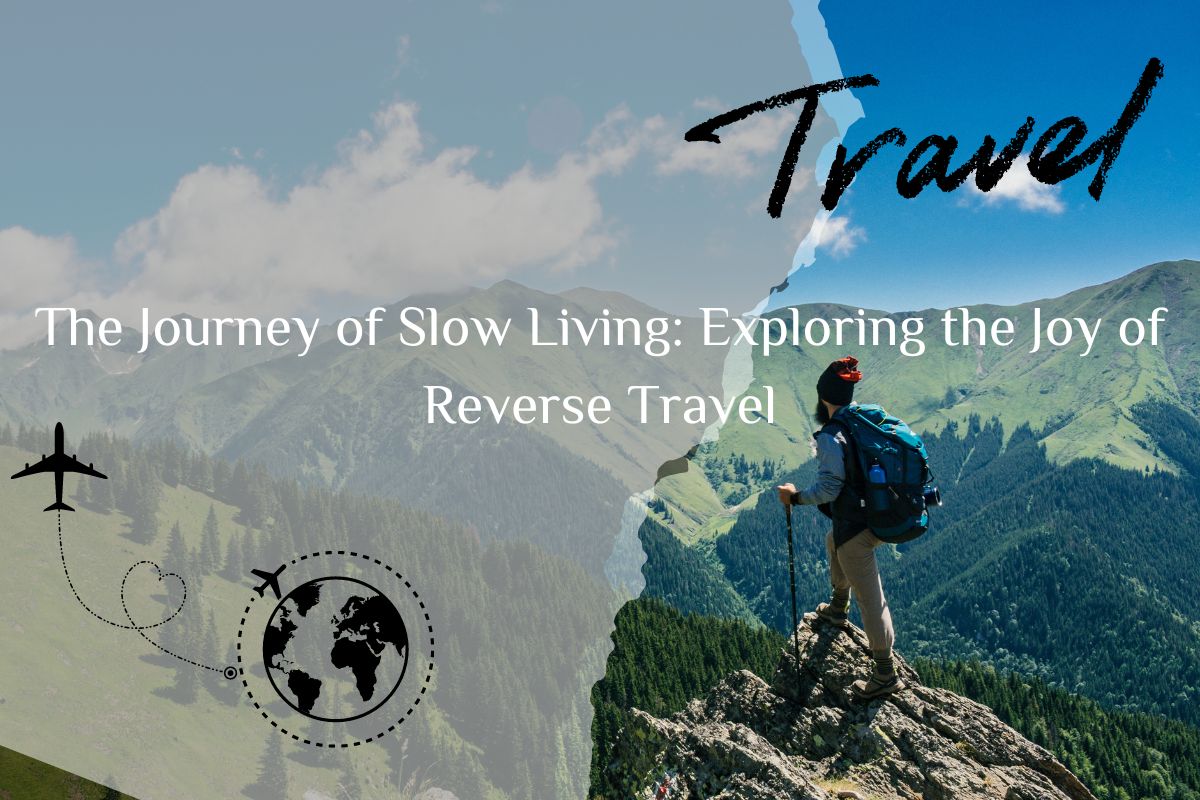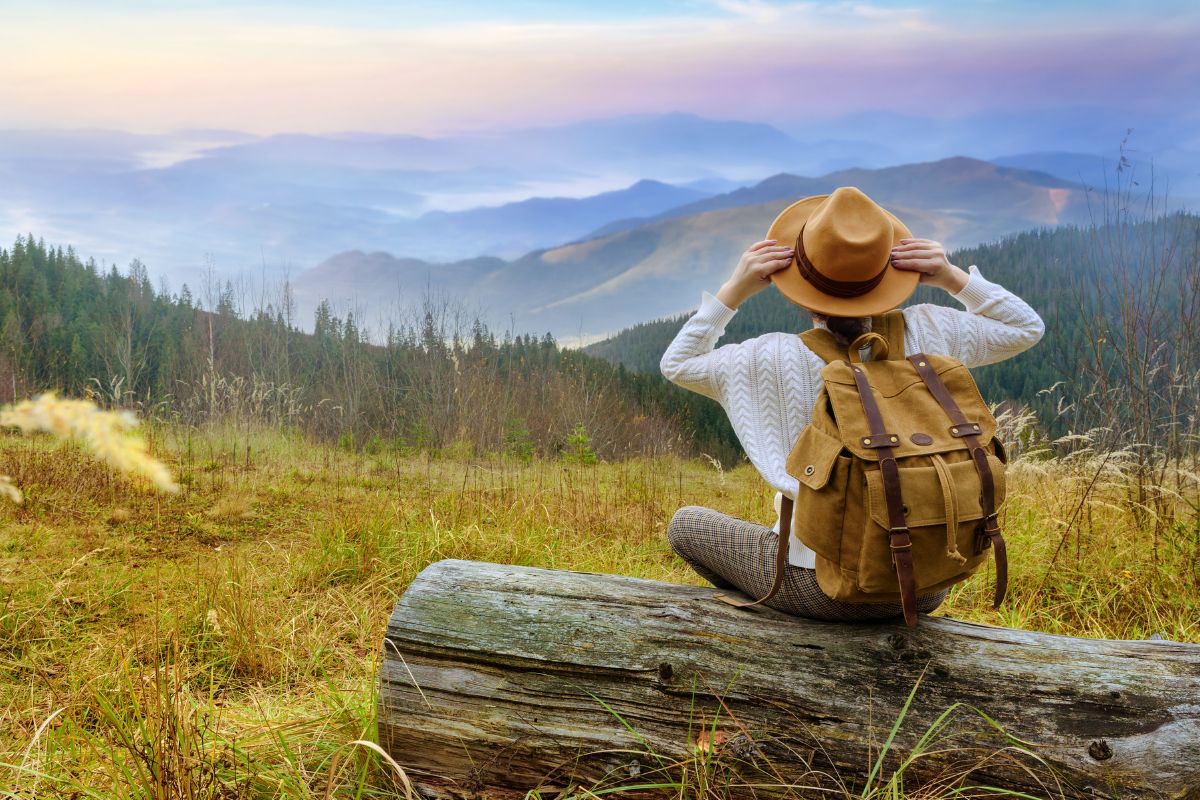The Journey of Slow Living: Exploring the Joy of Reverse Travel
Do you enjoy traveling? When talking about travel, many people envision those well-known tourist destinations. However, during holidays, these places are often overcrowded, and the cookie-cutter rush for sightseeing diminishes the joy of travel. Have you ever considered setting off in a different way? Not all beautiful sceneries need to be viewed in crowded places — many undiscovered niche spots can equally bring us unexpected delights! Recently, a fresh travel trend has emerged in China — reverse travel. This trend encourages people to avoid crowded tourist spots during holidays and instead head to tranquil and peaceful small towns, enjoying a leisurely and carefree vacation. Savor the serene and gentle side of life. Doesn't this travel concept sound particularly appealing? This article will introduce you to this intriguing trend of travel!

Embracing the "Relaxation Mode"
Seeking a leisurely awakening to nature has become a yearning for many travelers. They choose niche travel destinations with a simple purpose: to thoroughly relax their body and mind, relishing that unrushed pace of life. For example, waking up naturally, strolling into street alleys to find local delicacies, or leisurely spending the whole afternoon in a café, transforming these everyday moments into highlights of the journey. These places offer them a kind of relaxation vastly different from the daily hustle and bustle.

Tourists游客(yóu kè ) leisurely explore vibrant markets, bustling food markets, and artistic streets filled with life. They sit at street food stalls in ancient towns, savoring seemingly unremarkable but flavorful street food. The booming voices of vendors enthusiastically calling out in dialect fill their ears, and all these rich experiences make people deeply feel the lively atmosphere and unique local hospitality. These experiences invisibly form precious memories between the tourists and the destination.
游客 (yóu kè ), noun, tourist
Examples:
- There are always hordes of tourists here in the summer.
夏天这里总有成群结队的游客。
xià tiān zhè lǐ zǒnɡ yǒu chénɡ qún jié duì de yóu kè 。 - Everywhere we went was full of tourists.
我们所到之处游客人头攒动。
wǒ men suǒ dào zhī chù yóu kè rén tóu cuán dònɡ 。
Compared to the hectic schedules of group tours in the past, which left more of tiring memories, people nowadays may embark on a journey because of a song, a painting, or the touch of a delicious dish.

They freely wander the streets and alleys of small towns, opting for cozy homestays as their resting sanctuaries. Itineraries are planned with ample freedom, void of strict schedules to visit all attractions景点(jǐnɡ diǎn) hastily. What matters more is the leisurely pace and the gratifying comfort experienced throughout the journey. In summary, the contemporary travel concept is "no need for strict planning, no rushing; rejecting uniform sightseeing," allowing the mind and body to truly unwind in each journey.
景点 (jǐnɡ diǎn), noun, attraction
Examples:
- What nearby attractions haven't I visited?
附近有什么景点我没去过吗?
fù jìn yǒu shén me jǐnɡ diǎn wǒ méi qù ɡuò mɑ ? - I have tickets for the attraction.
我有这个景点的门票。
wǒ yǒu zhè ɡe jǐnɡ diǎn de mén piào 。
Young People's Yearning for Traditional Chinese "Slow Living"
The concept of slow living originates from traditional Chinese culture, advocating a slower pace of life, returning to a natural and calm way of living. In the fast-paced modern society, the idea of slow living serves as a spring of fresh water, reminding people to seek tranquility amidst busyness, rediscovering the essence and pleasures of life. Ancient people rose with rooster crows in the morning and rested with the sunset, following the rhythm of nature – this is the essence of slow living.

The younger generation no longer content with merely taking photos for remembrance; they aspire to deeply understand a place's history, culture, customs, and even the everyday life of locals through travel. This type of travel encourages them to slow down, immerse in the authentic atmosphere of the destination, and savor the profound experiences brought by every conversation and every landscape. Through reverse travel, they momentarily escape the hustle and bustle of daily life, seeking a sanctuary for the soul. Allowing for true relaxation and rejuvenation. This aligns with the traditional concept of "slow living," giving people the time to savor life's details and feel the rhythm of nature.
In this fast-paced era, the idea of reverse travel offers us a new way of experiencing travel, allowing us to step away from the hustle, delve into small and beautiful places, and relish the beauty of slow living. Slow down, experience the local culture and charm, and let travel be a genuine relaxation and exploration. Perhaps, in the next holiday, you too can try reverse travel, discovering the hidden beauty tucked in corners, truly taking a break for your mind and body. May your journey be filled with surprises and joys!